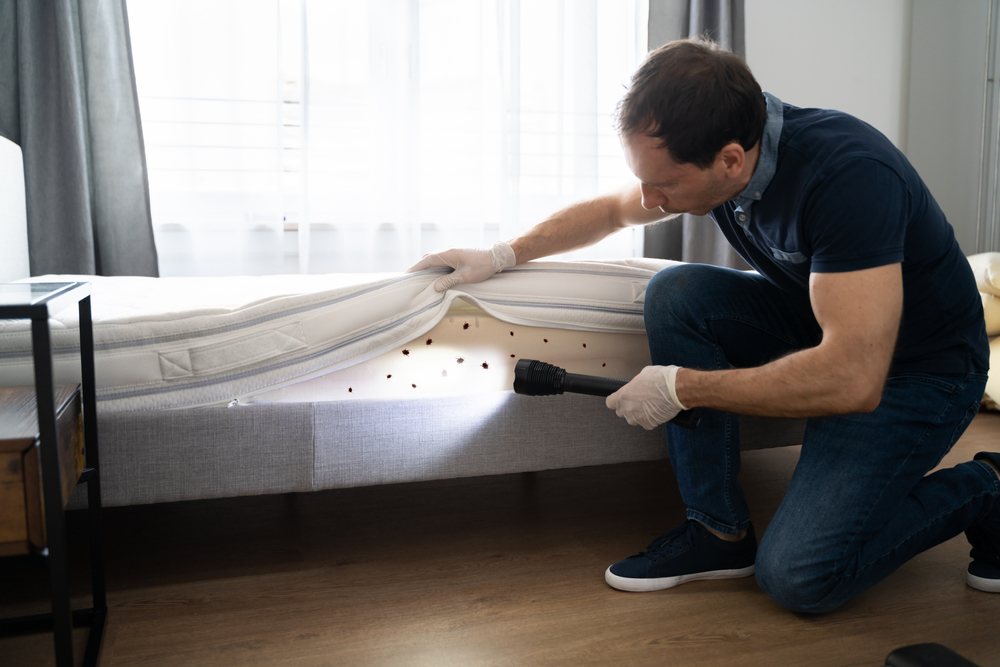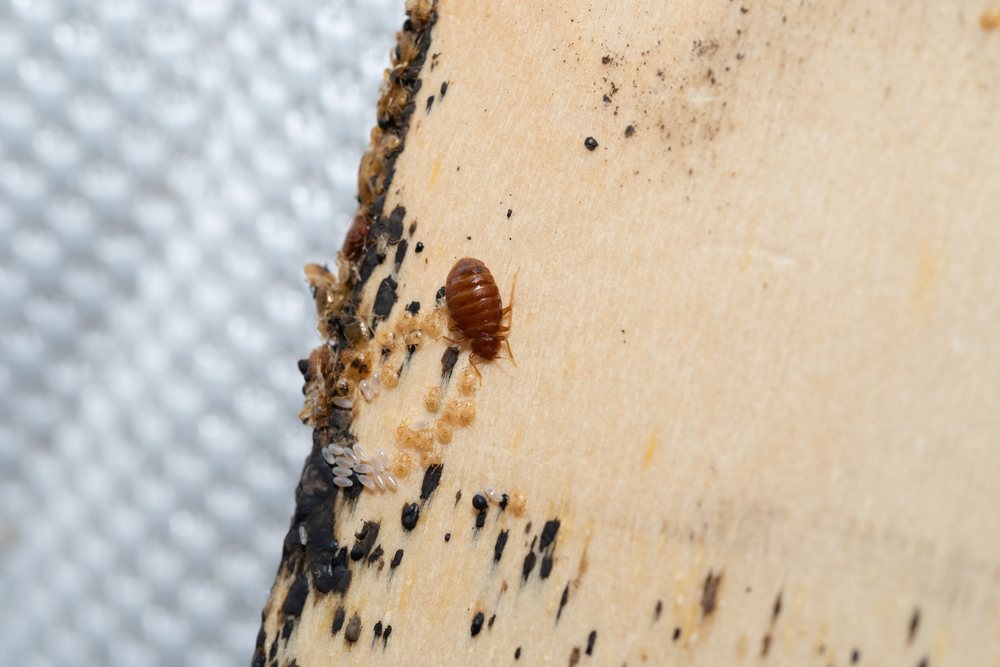Page Contents:
Do Bed Bugs Jump?
Bed bugs can be difficult to get rid of, and it may seem like they travel great distances very easily.
Many people are surprised to find bed bugs in their home and wonder how they got there.
This often leads to the conclusion that bed bugs can fly, crawl fast, or even jump long distances.
However, bed bugs do not jump, nor can they move fast on their own.
They travel by hitchhiking on people, their belongings, and animals as they’re moving from place to place.
Can Bed Bugs Jump On Your Clothes?
While bed bugs are incapable of jumping, they love to nestle in a warm fabric where they have a potential source of food close by.
Like mosquitos, bed bugs feed on the blood of humans or animals.
Though bed bugs won’t jump on clothes, they may hide in clothing piles or dirty laundry that’s left on the floor.
Typically bed bugs will hide in a dark or damp place until the nighttime, at which point they will come out of hiding to feed.
Do Bed Bugs Fly?
Bed bugs do not have wings so they are not capable of flight.
While this may cause you to breathe a sigh of relief, do not underestimate their ability to get around.
Bed bugs crawl around and cling to fabric and other material, including clothing, luggage, and fur.
Types of Indoor Pests That Can Jump
There are a few types of indoor pests that get around by jumping.
If you see an insect jump, it’s not a bed bug, but it could be one of these 3 other household insects.
Fleas
Fleas are known for their ability to jump great distances compared to their small size. Fleas are serious pests that usually bite animals, and can even spread disease.
Similar to bed bugs, they cling to hosts and can become very widespread throughout a space. If caught early, you can eradicate the fleas immediately to help remove an infestation before it starts.
Flea Beetles
Flea beetles jump very similarly to fleas, but they’re less of a threat to humans and animals. This is because flea beetles feed on plant matter rather than blood.
Therefore, they can be a risk to gardens and landscaping. Just like fleas, one insect can very quickly become an infestation.
Roaches
While roaches don’t necessarily jump, they launch themselves using their wings to cross large distances through the air. Roaches are a health risk but they don’t usually bite people or animals if they can help it.
Their diet consists of both plant and animal matter. They like to live in the cool, dark areas of a house and tend to come out only at nighttime.
Can Bed Bugs Hide On Your Body?
Bed bugs are great at clinging to various materials, but they don’t usually hide directly on your skin.
They can get in your hair, but they don’t like to stay there because they prefer a warmer environment than your scalp.
At the end of the day these creatures can only really get in your hair if you’re sleeping in a bed that’s heavily infested with bed bugs.
Will Showering Get Rid of Bed Bugs?
Showering will flush bed bugs out of your hair and skin. Unlike fabric, they are not as capable of clinging to skin and hair, even though they can crawl on these.
Using soap and shampoo is usually enough to make sure there are no bed bugs left on your body.
However, if you do find bed bugs on your skin or hair, you should inspect yourself after a shower to ensure that none of them remain.
Sometimes, bed bug eggs can get stuck in hair, and you’ll want to pull them out manually.
Any bugs that remain on your scalp can cause bites and skin irritation. This can be a major problem if left untreated.
What Kills Bed Bugs?
There are many ways to get rid of bed bugs.
It is reported that they are sensitive to heat as well as certain chemicals. Some people have used a hot hairdryer or sauna to kill bed bugs.
Baking soda and cayenne pepper are two household items that can kill bed bugs but are still safe to use on the human body.
You can apply baking soda to an affected area directly, or you can make a solution by mixing cayenne with water and spraying it on the bed bugs.
The most important thing is to practice prevention and recognize bed bugs early before they become a major issue.




